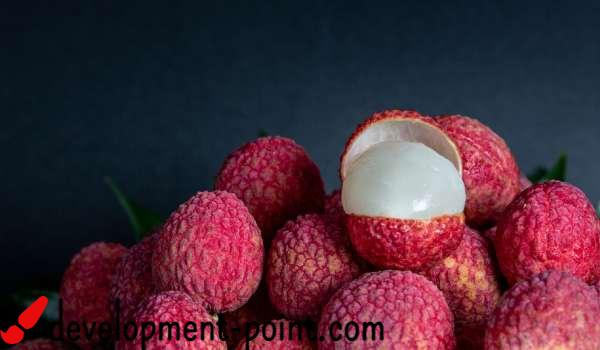Hibiscus tea: 7 surprising health benefits
What are the benefits of hibiscus tea? How can it be set up? Learn with us from this article about the possible health benefits that hibiscus tea provides to the body, how safe it is for pregnant and breastfeeding women, and whether there are any side effects or damages that should be carefully considered or not.
What is hibiscus tea?
Hibiscus tea is a type of herbal tea that is made by steeping some parts of the hibiscus plant in boiling water. It is dark red in color and has a sweet and sour taste at the same time, similar to the taste of cranberries. Hibiscus tea can be consumed hot or cold, and according to many studies, this tea offers many different health benefits to the body, including blood pressure, cholesterol, and others.
Benefits of hibiscus tea
Potential health benefits of hibiscus tea include:
1- It is full of antioxidants
Hibiscus tea contains many antioxidants, which are molecules that help fight elements harmful to the cells of the body known as free radicals. Therefore, this tea can help the body to fight diseases that result from the accumulation of these molecules.
2- Reducing blood fats
Some experiments have found that drinking hibiscus tea can help reduce and reduce levels of fats in the blood, which are considered factors that increase the risk of heart disease.
The results of some studies indicated that there was an improvement in the levels of good cholesterol in participants with diabetes, after drinking this tea for a month. Another study indicated that people with metabolic syndrome taking approximately 100 milligrams of hibiscus extract daily helped lower total cholesterol levels and raise good cholesterol.
3- Promoting liver health
Some studies found that eating hibiscus can enhance the health of the liver and help maintain its functions. According to a study conducted on some overweight people, the results indicated that eating hibiscus for 12 weeks helped reduce liver fat.
4- Prevention of cancer
Hibiscus contains a large amount of polyphenols, which are full of anti-cancer properties. Some studies showed promising results regarding the effect of hibiscus extract on cancer cells. This extract helped reduce the spread of cancerous oral and plasma cells. In another animal trial, hibiscus extract helped suppress stomach cancer cells by 52%, compared to the results of other trials.
5- Fighting bacterial infection
Hibiscus tea contains anti-bacterial properties. According to the results of an animal study conducted on this hibiscus extract, this extract helped suppress the activity of certain types of bacteria, such as E. coli, that can cause some unpleasant physical symptoms such as cramping, gas, and diarrhea.
6- Hibiscus tea for pressure
According to a 2010 study published in the Journal of Nutrition, drinking hibiscus tea daily for several weeks helped lower blood pressure in people at risk of high blood pressure, and in people who already had high blood pressure, but only slightly.
Another analysis published in 2015 of some other studies indicated that drinking hibiscus tea significantly helped reduce diastolic and systolic blood pressure, but the matter still needs more experiments.
7- The benefits of hibiscus tea for slimming
Some studies showed some positive results when studying the effect of hibiscus tea on controlling body weight. Some results indicated that this tea helped reduce body mass index, total body weight, and body fat percentage, in addition to the hip-to-waist ratio or size.
As mentioned earlier, hibiscus tea can help lower the percentage of fat and cholesterol in the body, which in turn can help reduce the risk of obesity.
Notice: Most of the aforementioned benefits are the results of animal experiments, and more human experiments are still needed to support and prove these benefits, so this tea must be consumed with care and it is preferable to consult a doctor before consuming it in order to obtain any of the previous benefits.
How to make hibiscus tea
Hibiscus tea is one of the easiest types of drinks that can be prepared, just put a little dried hibiscus in a cup, then put boiling water and leave the mixture for 5 minutes, then put sugar (to taste) and drink it.
This tea can be taken cold or hot, so some tend to put the mixture in the fridge for some time and listen to it while it is cold. You can also add some lemon juice or lemon slices to increase the flavor and reduce the pungent taste.
Dried hibiscus can be purchased from apothecary stores, and it is also available in ready-packed tea bags that can be used and put in water easily.
Is there any damage to hibiscus tea?
Although drinking this tea is safe in most cases, there are some side effects that can occur that you should pay close attention to and include the following:
- Consuming large amounts of hibiscus tea can cause damage to the liver.
- Some sources indicated that drinking hibiscus tea while taking chloroquine (a drug intended to treat malaria) could affect the effectiveness of the drug in the body.
- People who take high blood pressure or diabetes medications should be careful to constantly monitor their blood pressure and sugar levels when eating hibiscus, as it can reduce these levels.
It should be noted that although drinking this tea in moderation is considered safe, there are some other products that contain hibiscus that have not been approved by the competent authorities, and may contain ingredients other than hibiscus that are unsafe, such as supplements and capsules, so you should pay attention. .
Hibiscus tea for pregnant women
Despite the many health benefits this tea offers for the overall health, it is not recommended for consumption during pregnancy or breastfeeding. According to many studies that were conducted in this regard, the results indicated that eating hibiscus during pregnancy or lactation can cause some serious health problems, most notably:
- delayed puberty
- abortion.
However, more studies are still needed, and given the conflicting results, it is preferable to avoid drinking this tea during pregnancy and to consult a doctor first to find out whether it is safe for you and the fetus or not.

